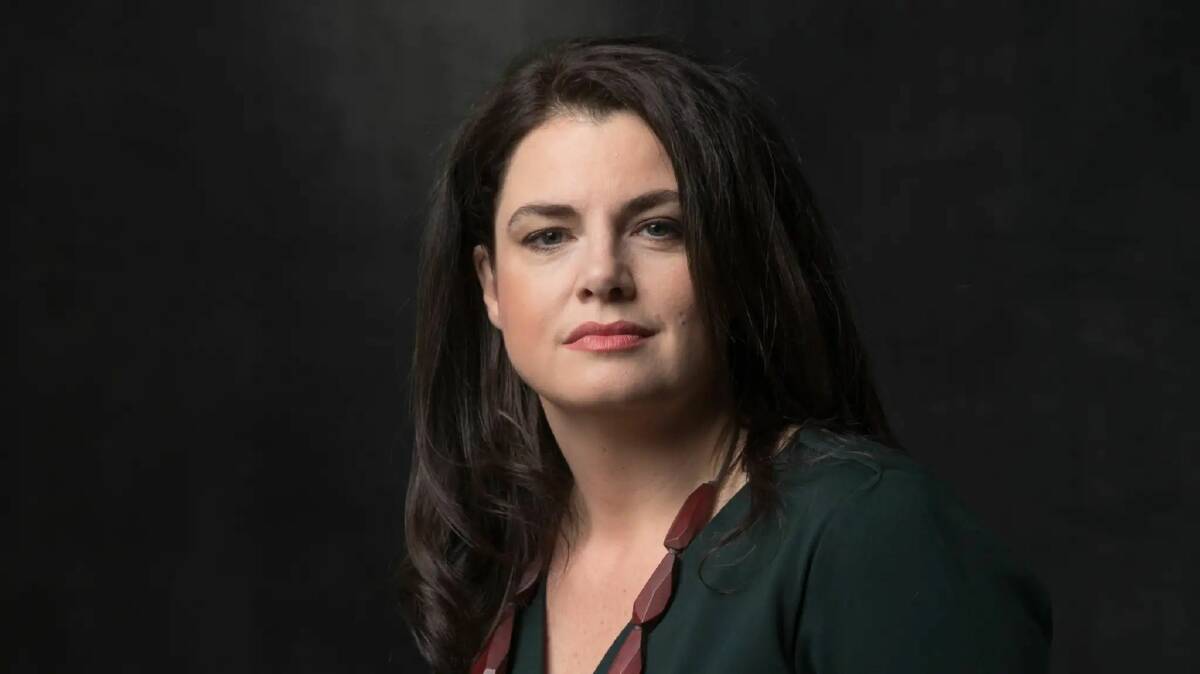
Award-winning investigative journalist Louise Milligan - best known for her stories about the Royal Commission into Institutional Responses to Child Sexual Abuse and her compelling exposé about the crimes committed by George Pell - spoke with Australian Community Media about her lengthy investigation into the Catholic Church, which she says was never about ideology, but about the abuse of children. Cardinal Pell has appealed his conviction and a decision by the Court of Appeals is imminent.
The background
Subscribe now for unlimited access.
$0/
(min cost $0)
or signup to continue reading
Louise Milligan has devoted the past few years of her life to investigating allegations about Ballarat-born Cardinal George Pell, Australia's highest-ranking Catholic.
As a result, Ballarat is a place that is close to her heart - her second home - but one that saddens her.
Milligan was brought up as a very strict Catholic, though she left the church when she was a teenager.
She began to report on stories about abuse in the Catholic Church through her work on the Royal Commission into Institutional Responses to Child Sexual Abuse for the ABC's 7.30 program in 2014, before making the trip to attend hearings in Ballarat the following year.
I'm interested in the church, it's one of those things about being Catholic - it kind of stays in your bones. It never really leaves you even though you may leave it.
- Louise Milligan
At that time she wrote a number of stories, including about Ballarat priest Gerald Ridsdale.
But it was when she heard Julie Stewart's story in late 2015 - a Doveton Parish survivor - that the first seed of doubt was planted in her mind about Pell. Ms Stewart's story of being abused by Peter Searson haunted Milligan for many reasons.
"Julie was the same age as me, we grew up in Melbourne around the same time and I really felt like I could have been her so easily. I had confession with a paedophile priest," she said. "It just so happened he was into boys."
At the Victorian Parliamentary Inquiry in 2013, in giving his evidence, Pell stated that Peter Searson "might have victims".
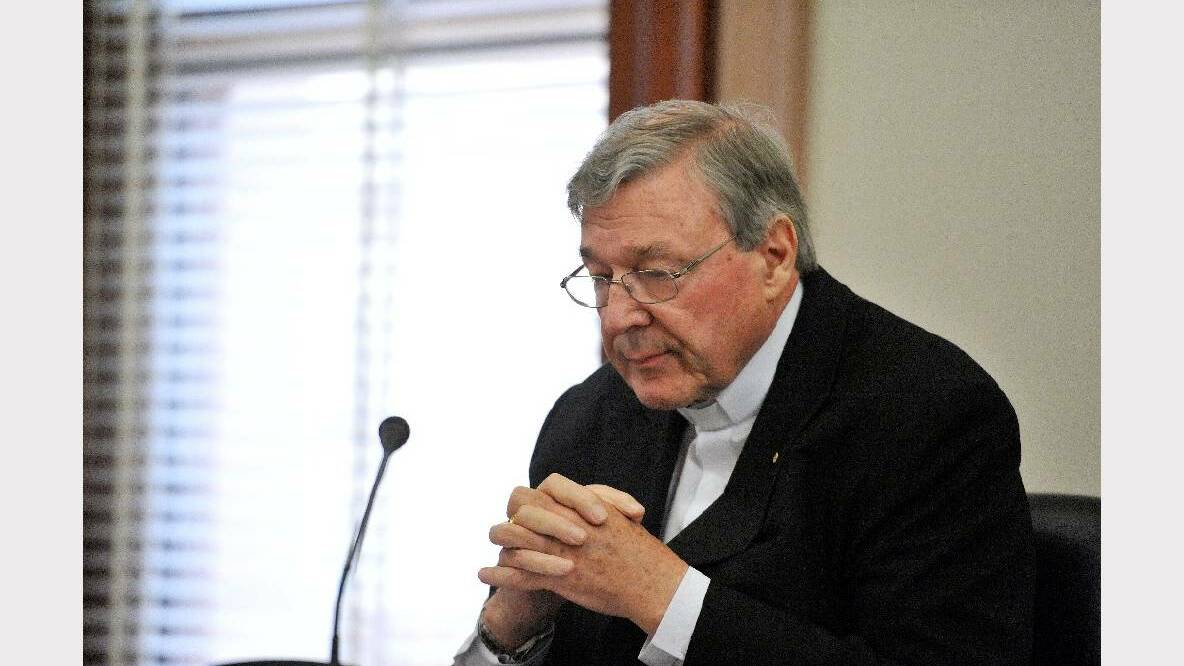
Ms Stewart was infuriated by Pell's evidence and went on to give her own evidence to the Royal Commission in November 2015, when she said that in the 1990s she had received a letter, signed by the then Archbishop of Melbourne, Pell, apologising for her abuse. She was subsequently given $25,000 in compensation through the Melbourne Response, set up by Pell himself.
Pell was supposed to fly to Australia to give evidence to the Royal Commission in Ballarat, but his lawyers, citing he was too ill to fly, made an application for him to do so via video link from Rome.
Milligan had been preparing to write about Pell's evidence by interviewing a number of Ballarat survivors while making arrangements to go to Sydney to cover the Royal Commission.
Then, in 2016, the Herald Sun ran a front page story stating that Victoria Police's SANO Taskforce was investigating Pell in regards to allegations of child sexual abuse in Ballarat.
It was completely unsourced and to be honest, I didn't believe it. I just thought... it couldn't possibly have not gotten out by now because he's so high-profile.
- Louise Milligan
"But at that stage I didn't really understand how long it takes for survivors to come forward. The royal commission found that the average time for survivors of catholic clergy abuse to come forward is 33 years."
The investigation
She began digging further and called a number of sources in an effort to understand if the allegations the article had made against Pell had any standing; she was told by trusted sources that she was backing the wrong horse.
But then a retired businessman - Les Tyack - came forward with an account of seeing Pell exposing himself to three boys in the change-rooms of the Torquay Surf Club in the 1980s.
Milligan said she found Tyack, a man with "no skin in the game" so compelling that she walked away from the interview convinced without a shred of doubt that he was telling the truth.
For months afterwards Milligan conducted interviews with people from survivor networks, sifted through historical documents and spent hours researching at the State Library of Victoria.
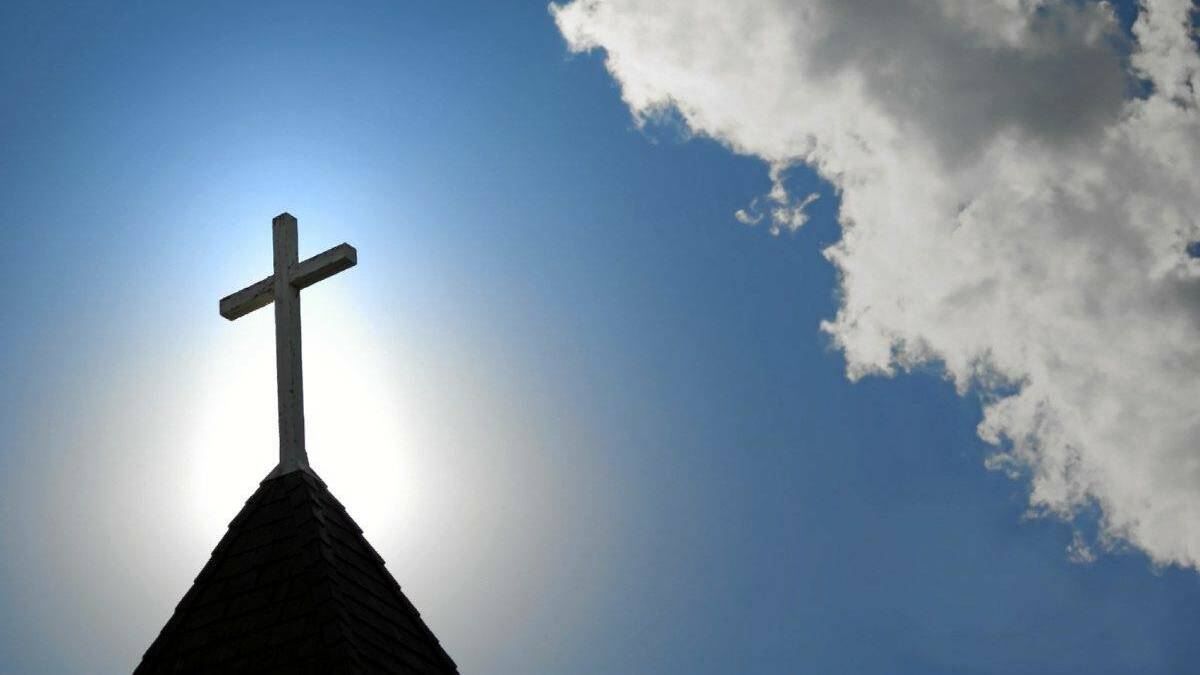
Through her painstaking research, she met with a number of complainants, before reporting allegations against Pell while she was working on ABC's 7.30 program.
Later, through her role as a Four Corners journalist, Milligan secured exclusive interviews with the family of the choirboy Pell was convicted of abusing at Melbourne's St Patrick's Cathedral in 1996, when he was Archbishop of Melbourne.
"When I met all of those people, I never had any cause to think that they weren't telling the truth and I've never thought that since," she said.
The pressure
Researching and reporting on the allegations being made against Pell - Australia's most senior Catholic figure - and taking on the Church was a huge challenge, but Milligan did not shy away from it.
Rather, she dedicated herself to uncovering the truth with "absolute care and forensic attention".

When her first story aired on the 7.30 program, Milligan felt her blood turn cold as she watched her story being broadcast across the Australian airwaves.
"I felt like I had stepped into icy, shark- infested waters. Like I had lemonade running through my veins," she said.
It was very stressful. George Pell is an extremely powerful person. He is a powerful person who cultivates other powerful people.
- Louise Milligan
Milligan said this was evidenced by two of the people who stood up in support of Pell during the trial - two former Australian prime ministers.
"Through research for the program and then later for the book, and in speaking to many current and former priests, bishops and other members of the Catholic Church, I learnt [Pell] had a very pugilistic way of doing things. He was frequently described to me as a bully.
"Taking on someone like that is a big step and it's intimidating. It was a big task."
Speaking with so many victims of abuse and their families and learning how the trauma of what had happened to them had affected the trajectory of their lives - mental illness, drug abuse, crime and some even taking their own lives - Milligan felt an enormous sense of responsibility for her reporting.
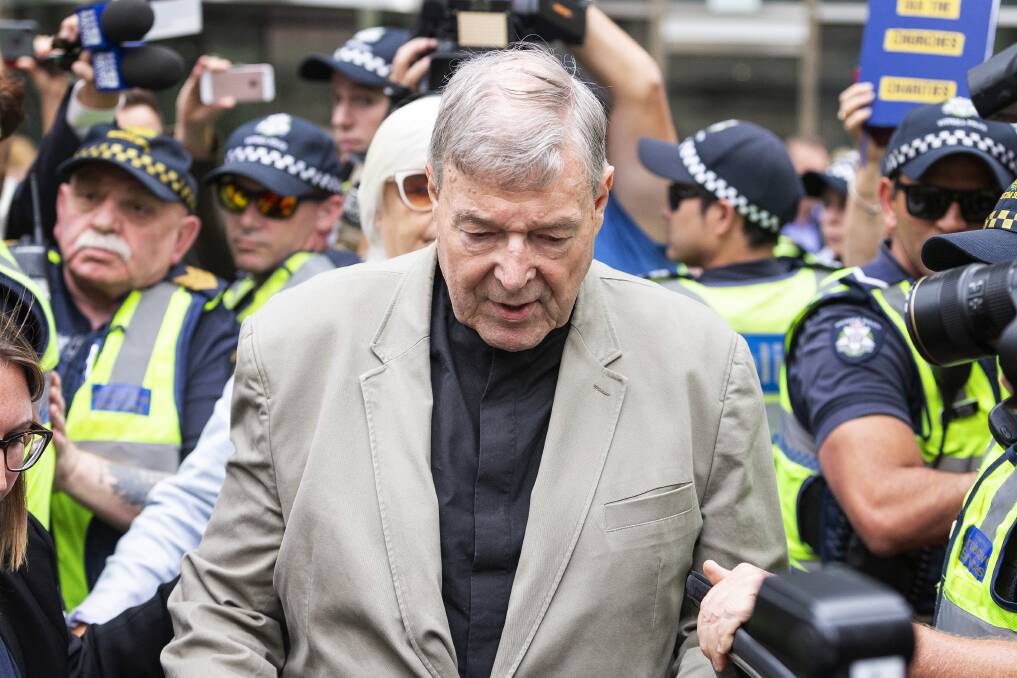
The trial
This sense of responsibility was exacerbated when she was called as a witness in the trial, when she was doggedly questioned by Pell's defence for more than six hours.
"It was huge pressure. I felt a sense of responsibility that I didn't let them down by inadvertently making a mistake," she said.
"The day after it, I felt like I had been hit by a truck. I lay in bed unable to move. Every bone in my body hurt and I was just absolutely shattered."
Milligan said the experience pushed her to reflect on the legal system as she - a journalist with a law degree and years of experience sitting through court proceedings as a journalist, being advised by a brilliant QC, with the backing of the ABC and its legal team - was in a powerful position, but still found giving evidence an exhausting experience.
"We have to do this better. We can't continue to treat witnesses like this. What propelled me to keep going was the legal abuse of these people and the cover-up.
"They keep it inside for all these years and then they finally pluck up the courage to come forward and they are treated with disdain, they are subjected to a cover-up; they find an institution in complete denial.
One of the things survivors continuously said to me was the initial abuse was one thing but not being believed was the thing that really eats away at you.
- Louise Milligan
Despite dedicating so many years to investigating the allegations against Pell, she was not permitted to attend the trial. And this she found excruciatingly frustrating, not just for herself, but for the young man giving evidence, for whom she knew it would be extremely challenging.
Concurrently Milligan was fighting a request from Pell's lawyers to name her confidential sources regarding allegations that Pell had sexually assaulted young boys at a Ballarat swimming pool in the 1970s.
For her, the worrying part was that it was all happening in secret as the trial was suppressed.
"If the judge agreed with Pell's legal team and I didn't give up my sources, I could be prosecuted for contempt of court and that potentially carries a jail term. That was scary - I have kids," she said.
After being told a decision would take some time and that it would delay the trial, Pell's legal team elected not to pursue the request.
"I felt like I was in that moment in the Wizard of Oz, when Dorothy throws the bucket of water on the Wicked Witch and poof, gone, because it was so stressful."
After the lengthy process, a mistrial and then the re-trial, when Pell was convicted that December, Milligan found out by a text message. She pulled over her car, called her publisher Louise Adler and burst into tears.
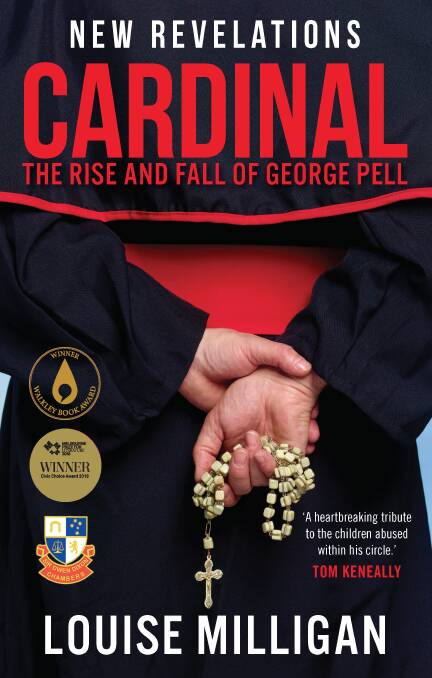
The book
Despite "wading around in misery for the past few years,'' Milligan has retained faith in the goodness of people.
"I hoped for change because of the royal commission and that was part of the reason I wanted to write my book," she said. "It was an exhausting process but it was rewarding."
Milligan recounts her captivating investigation in her book Cardinal: The Rise and Fall of George Pell.
Though the book was pulled from shelves during the trial due to a suppression order, it was re-released after Pell was sentenced to six years imprisonment after being found guilty of five charges of child sexual abuse in December 2018.
Australian media was not able to report on the verdict until the suppression order was lifted.
Louise Milligan will speak about her book at Daylesford's Words in Winter Festival on August 17.
If this story has affected you contact 1800 RESPECT (1800 737 732).
Have you signed up to the Bendigo Advertiser's daily newsletter and breaking news emails? You can register below and make sure you are up to date with everything that's happening in central Victoria.

